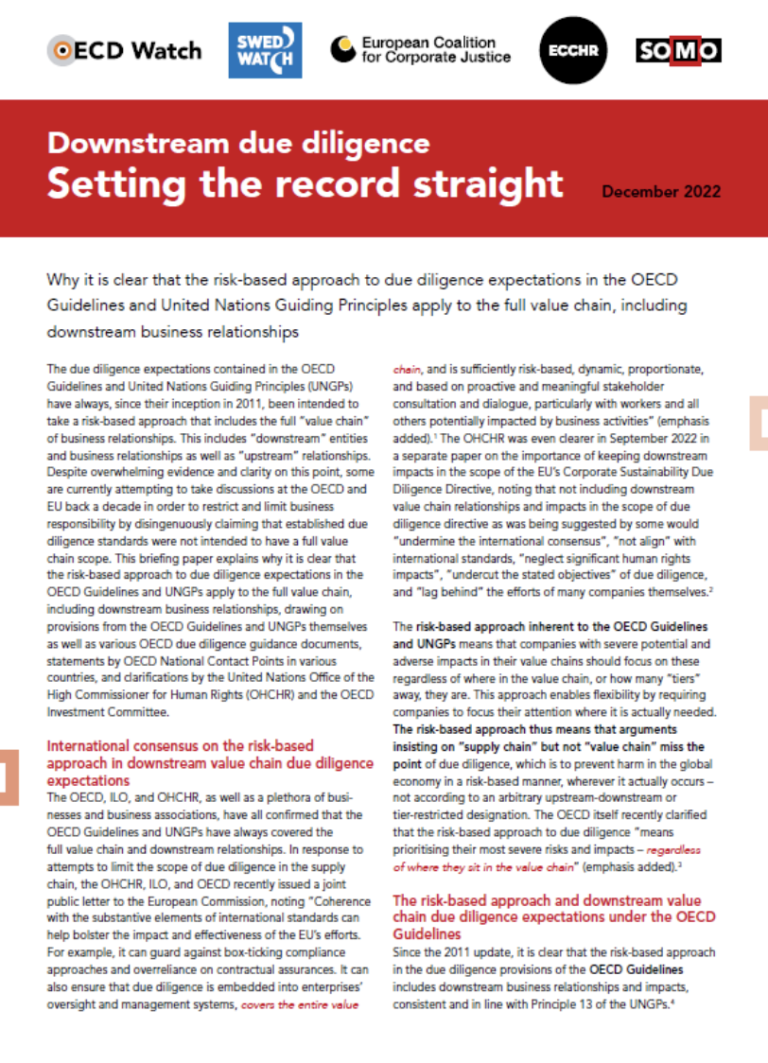The due diligence expectations contained in the OECD Guidelines and United Nations Guiding Principles (UNGPs) have always, since their inception in 2011, been intended to take a risk-based approach that includes the full “value chain” of business relationships. This includes “downstream” entities and business relationships as well as “upstream” relationships. Despite overwhelming evidence and clarity on this point, some are currently attempting to take discussions at the OECD and EU back a decade in order to restrict and limit business responsibility by disingenuously claiming that established due diligence standards were not intended to have a full value chain scope. This briefing paper explains why it is clear that the risk-based approach to due diligence expectations in the OECD Guidelines and UNGPs apply to the full value chain, including downstream business relationships, drawing on provisions from the OECD Guidelines and UNGPs themselves as well as various OECD due diligence guidance documents, statements by OECD National Contact Points in various countries, and clarifications by the United Nations Office of the High Commissioner for Human Rights (OHCHR) and the OECD Investment Committee.

